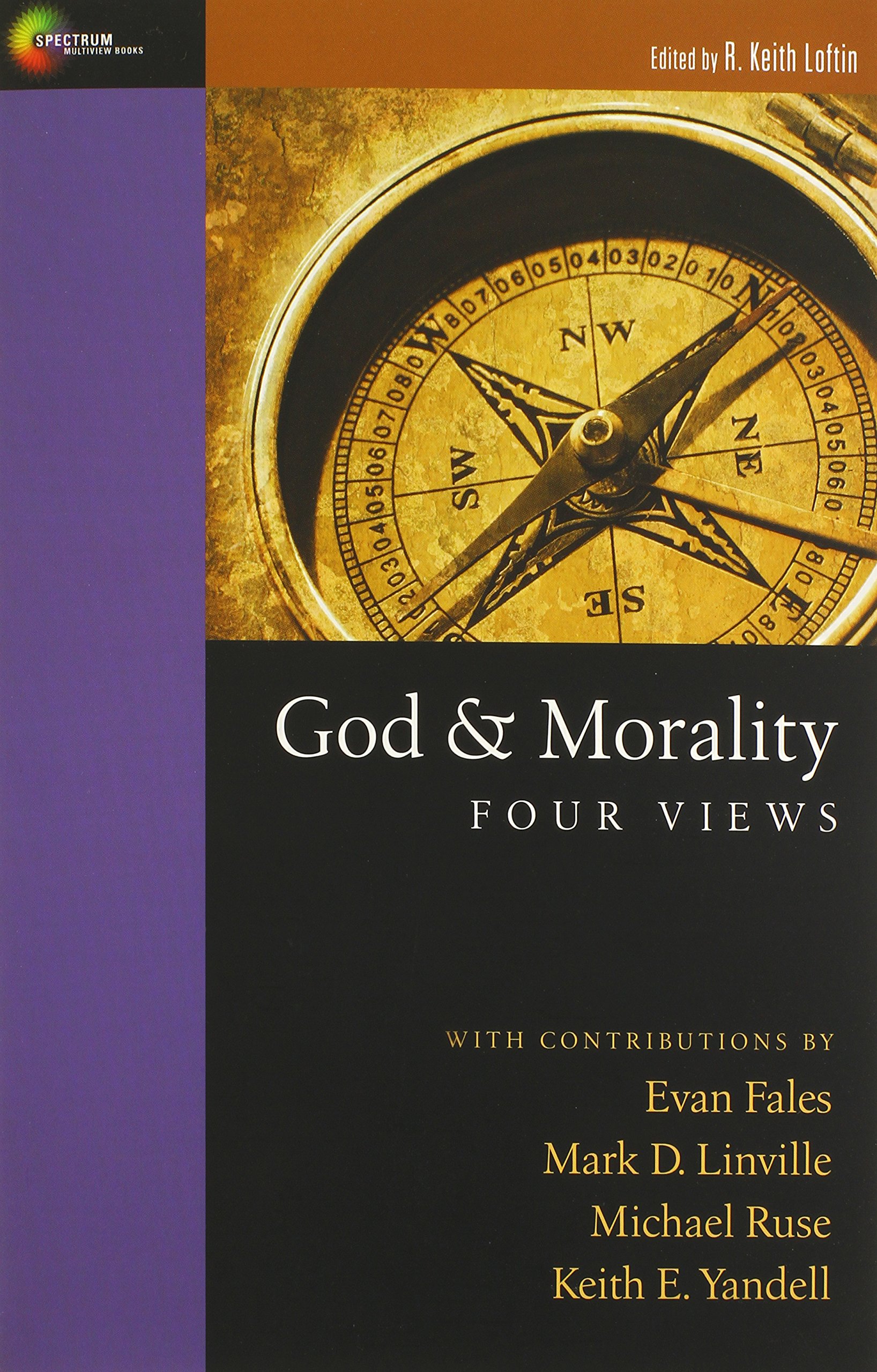 God & Morality: Four Views, ed. by R. Keith Loftin (Downers Grove: IVP Academic, 2012), 180 pp.
God & Morality: Four Views, ed. by R. Keith Loftin (Downers Grove: IVP Academic, 2012), 180 pp.
Almost all Christians familiar with the world of apologetics are familiar with the “moral argument,” which claims that in order for the moral law to be absolute and thereby create moral obligations, the moral law must be metaphysically grounded in an absolute source–namely, God.
It is rare that we hear serious dialogue among philosophers and ethicists who ascribe to competing views on this issue. Keith Loftin has ably served as a fair referee as four of these positions are stated, critiqued, and defended. Two of the contributors (Fales and Ruse) approach the issue from the perspective of atheism/agnosticism and two (Yandell and Linville) from the perspective of Christian theism.
Too often the views of those with differing perspectives are quickly dismissed and rarely granted the serious consideration that they deserve. This work presents an articulate statement of each of these four positions in dialogue, which is helpful for refining the reader’s understanding of the distinctions between the views, especially those which share a common view about the existence of God.
Is the moral law absolute? What are its grounds? Four views from top philosophers Share on XThe first view that this book addresses is naturalist moral realism, the view that moral facts exist, but are simply a feature of the natural world and are not grounded in a supernatural, spiritual, or divine source. Evan Fales describes and defends this position.
The second position, described and defended by Michael Ruse, is naturalist moral nonrealism. Ruse argues that moral facts are only apparent because of the way that human beings have evolved–essentially, what we perceive as moral facts are beliefs that provide an evolutionary advantage to the bearer.
The third section of the book is focused on moral essentialism. This view, represented by Keith Yandell, holds that for a moral fact to be true, it must be true independent of any mind, sociological arrangement, or linguistic convention–it is necessarily true. This makes Yandell, like Fales, a moral realist, but unlike Fales, Yandell argues that moral facts are metaphysically grounded in either the nature or command of God.
The last section of the book is concerned with moral particularism, which is represented and defended by Mark Linville. This view rejects the idea that there are overarching moral principles applicable in every case. Instead, the moral man is one of good faith and acts for the benefit of others based upon the particular circumstances in which he finds himself.
The primary strength of this work is the quality of the contributions. Each of the contributors is a serious philosopher with credentials and respect within the field. Further, most of the contributions are approachable by the informed non-specialist. The only exception to this is Keith Yandell’s article on moral essentialism. It may be that it would have been impossible to explain this position adequately without what Michael Ruse calls, “technical philosophical analysis,” but this chapter is much more dense than the others. The fact that the other chapters are so approachable and generally free of the type of philosophical writing that scares away would-be non-specialist readers makes Yendell’s chapter even more difficult. Having said that, however, a non-philosopher would have no problem reading this book, following the arguments, and coming away with a sufficient understanding of the distinctions between the positions.
There is no doubt that there are other works that treat the “moral question” with more depth, but there is no work that I know of that treats the question with as much seriousness as Loftin’s work, but remains approachable to any informed reader. Most accessible works are shallow and often unfair in the way that they characterize the positions and problems of those who fall outside of a certain camp. Loftin has succeeded in editing a helpful, accessible, and balanced work that can be read quickly with only minimal prior exposure to philosophy.
Check out our interview with the editor, Keith Loftin.
Check it out or buy it here on Amazon.
